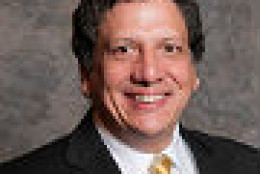Workforce Rights/Governance
-
National Active and Retired Federal Employees Association delegates elected Richard G. Thissen as their new national president. He succeeds outgoing President Joseph A. Beaudoin.
August 29, 2014 -
A new report from the Merit Systems Protection Board says that it's time for Congress to simplify the overly complex veterans preference laws to make sure they're doing what Congress put them in place to do.
August 28, 2014 -
Jenny Mattingley hosts a roundtable discussion of the current state of enterprise risk management in the federal government. August 22, 2014
August 22, 2014 -
For nearly three decades, Robert A. Canino has been a champion for the underdog, finding creative solutions to protect the most vulnerable from discrimination.
August 21, 2014 -
Creativity helps a federal attorney catch the bad guys. Robert Canino is regional attorney at the Dallas District Office for the Equal Employment Opportunity Commission. He's a finalist for a Service to America medal in the Career Achievement category for his history of creative legal prosecutions. On In Depth with Francis Rose, he explained how he uses civil rights law to prosecute human trafficking cases. View a photo gallery of Sammies finalists. Read an exclusive Q&A with Canino.
August 20, 2014 -
When Congress comes back to work after Labor Day, it will have to figure out how to fund the government to start off fiscal year 2015. Most people think it will be a continuing resolution. But they may wind up needing more than the 12 days they have scheduled now. Jessica Klement is legislative director of the National Active and Retired Federal Employees Association. On In Depth with Francis Rose, she said getting a budget in place will take up a lot of Congress's time -- and may stretch that time to the limit.
August 19, 2014 -
WIFLE president Cathy Sanz and Dexter Brooks, with the US Equal Employment Opportunity Commission, will discuss upcoming federal employee training programs that their organizations are sponsoring. August 8, 2014
August 08, 2014 -
The rule comes more than two years after President Barack Obama signed the provision into law on July 6, 2012. Under the final rule, eligible employees can work part time while drawing on part of their earned retirement benefits. Phased retirees must also spend at least 20 percent of their time mentoring other employees.
August 07, 2014 -
Rep. Donna Edwards (D-Md.) introduced a bill Thursday that would reduce the amount new federal employees must pay toward their government pensions. The National Treasury Employees Union and the National Active and Retired Federal Employees Association support the legislation, which would repeal the last two increases in retirement contributions.
August 01, 2014 -
Debra Roth will host a roundtable discussion of Senior Executive Service reform. July 25, 2014
July 25, 2014 -
NARFE Legislative Director Jessica Klement, and Federal Times Senior Writer Andy Medici will discuss chained CPI, pay raises, and other issues affecting feds. July 23, 2014
July 23, 2014 -
The Government Accountability Office is in the middle of an ongoing, multi-year study on the pay system, and taking its findings to Capitol Hill. A House Oversight and Government Reform subcommittee looked at the General Schedule last week. Jessica Klement is legislative director of the National Active and Retired Federal Employees Association. She shared her own ideas of how to reform the General Schedule on In Depth with Francis Rose.
July 22, 2014 -
Julie Perkins hosts a roundtable discussion of the latest developments in cybersecurity. July 11, 2014
July 11, 2014 -
While federal employees gave high marks on usefulness and importance to the Thrift Savings Plan, only a small percentage said they had flexible spending accounts because they saw little value in the program. The results are part of a survey that OPM has been doing since 2004 to gauge worker opinions on the health and wellness benefits it offers.
July 10, 2014 -
Two letters sent from Capitol Hill in call for the Office of Personnel Management to explain why it's taking so long to release final phased retirement regulations, and demand a revised timeline for action. Phased retirement was passed into law two years ago this week.
July 07, 2014




